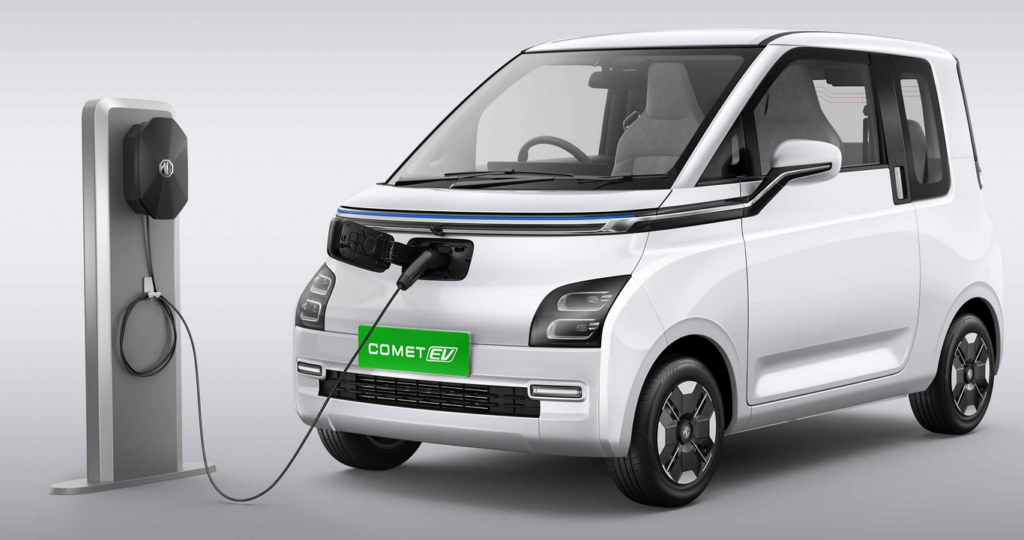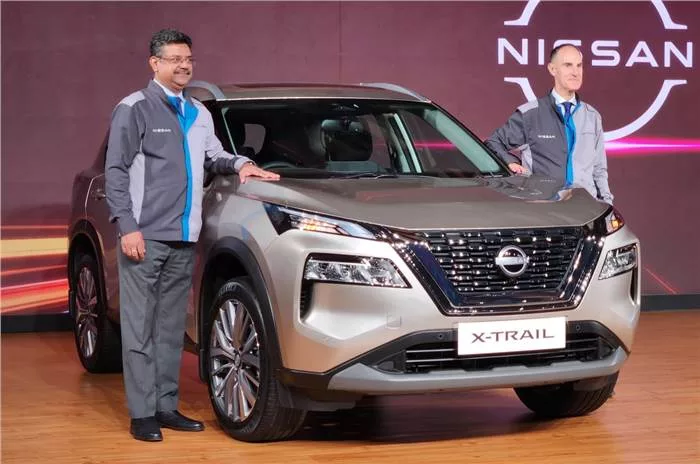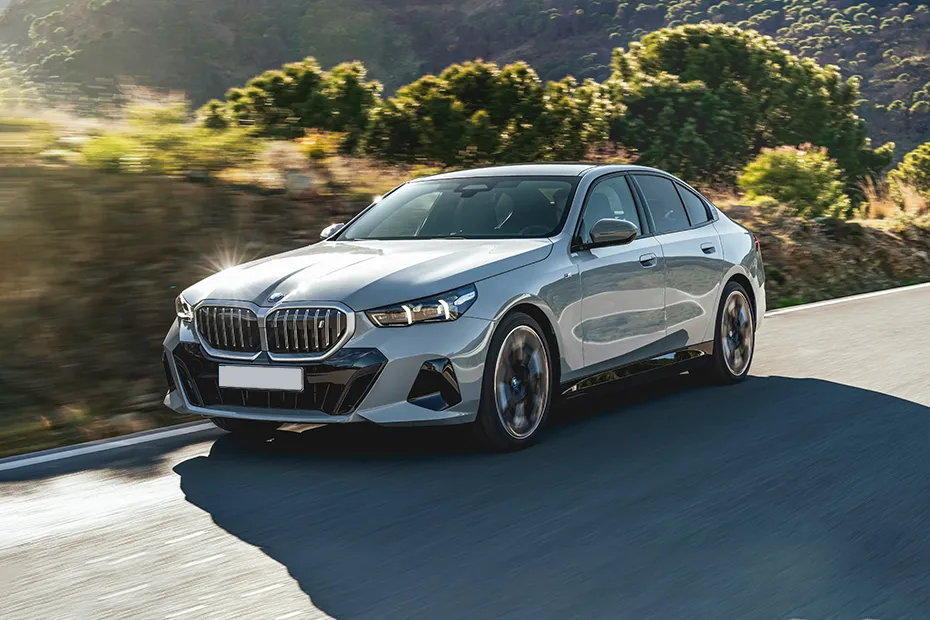CNG is considered an eco-friendly fuel source and is becoming increasingly popular as a fuel for vehicles, particularly in countries where natural gas is abundant. Using CNG helps reduce greenhouse gas emissions and dependence on imported oil, contributing to a cleaner and greener environment. CNG is typically cheaper compared to gasoline and diesel, resulting in lower operating costs for CNG vehicles
Because of these reasons, CNG cars have taken off in the past few years, with many Indian manufacturers offering CNG alternatives to their gasoline-powered vehicles. Many governments promote using CNG as a fuel source due to its lower environmental impact. Here’s a detailed look into CNG:
What is CNG?
CNG, or Compressed Natural Gas, is a natural gas which acts as a fuel source under pressure. It remains colourless, odourless and non-corrosive. CNG is mostly methane, which releases energy when combusted with air. Although CNG can be used in its gaseous or liquid form, most vehicles use the gaseous form compressed to 3000 PSI.
It is typically stored in high-pressure containers and used as a fuel source for vehicles, industrial processes, and heating. The compressed gas is fed into an engine, where it is mixed with air and burned to power the vehicle.
The use of CNG is relatively good for the environment due to its lower emissions compared to other conventional fuels, making it one of the cleanest burning fuels available. CNG also comes from LNG, or Liquified Natural Gas, which contains the same natural gas in a liquid form. Its main purpose is for shipping or storage as liquified natural gas has 600 times lower volume than its gaseous form.
History of Compressed Natural Gas
The use of Compressed Natural Gas (CNG) as a fuel source has a long history that can be traced back to the early 20th century.
1901-1930: The first recorded use of natural gas as a vehicle fuel was in 1901 in St. Louis, Missouri when a natural gas-powered taxi was introduced. The early adoption of natural gas vehicles was limited due to the limited availability of natural gas and the lack of a suitable distribution network.
The 1930s-1960s: The use of natural gas as a fuel source gained momentum in the 1930s, with the widespread adoption of natural gas as a fuel for industrial and commercial applications. During World War II, natural gas was used to power vehicles due to gasoline and diesel fuel shortages. The development of high-pressure storage tanks and other CNG storage and delivery technologies in the 1950s and 1960s helped increase CNG’s popularity as a fuel source.
The 1980s-2000s: The 1980s saw a significant increase in the use of CNG as a fuel source, with the widespread adoption of CNG-powered vehicles in countries like Italy and Argentina.
In the 1990s and 2000s, advances in CNG storage and delivery technology, as well as increased environmental awareness led to a further increase in the popularity of CNG as a fuel source.
Today, CNG is widely used as a fuel source for vehicles, industrial processes, and heating in many countries worldwide. With its lower fuel costs and cleaner emissions compared to traditional fossil fuels, CNG is considered a smart choice for eco-conscious consumers who are looking for an affordable and fuel-efficient mode of transportation.
Properties Of Compressed Natural Gas

Compressed Natural Gas (CNG) is a fuel source that compresses natural gas, a mixture of methane and other hydrocarbon gases. The properties of CNG are as follows:
Composition: CNG is mostly composed of methane, which is a highly flammable and colourless gas. It also contains small amounts of other gases, including ethane, propane, butane, and carbon dioxide.
Energy density: CNG has a lower energy density than gasoline or diesel, which means more CNG is needed to provide the same amount of energy as other fuels. However, CNG is stored in high-pressure containers, which increases its energy density compared to un-compressed natural gas.
Flammability: CNG is highly flammable and must be handled with care. If it leaks from a high-pressure container, it can ignite and cause a fire or explosion.
Emissions: CNG burns cleaner than traditional fossil fuels, resulting in lower emissions of harmful pollutants like CO2, NOx, and particulate matter. This makes CNG a more environmentally friendly fuel source than gasoline or diesel.
Cost: CNG is typically cheaper than gasoline or diesel, which makes it a cost-effective alternative fuel.
Availability: Natural gas is a domestically produced fuel that is readily available in many countries, making CNG a readily accessible alternative fuel.
Advantages of CNG
There are several advantages to using CNG as a fuel source:
Lower cost: CNG is typically cheaper than petrol or diesel, making it a cost-effective alternative fuel. For example, CNG costs about Rs 80 per kg, while petrol costs around Rs 100 per litre in Delhi. Moreover, CNG cars give better mileage, so while a petrol Tiago car typically has a mileage of 15 km/l, the Tiago CNG has a mileage of 26 km/kg.
Cleaner burning: CNG burns cleaner than traditional fossil fuels, releasing fewer harmful environmental pollutants. This can help improve air quality and reduce greenhouse gas emissions.
Abundant supply: Natural gas is a domestically produced fuel and is found in several countries, thus making it one of the most widely accessible fuels in the world.
Environmentally friendly: CNG is considered an environmentally friendly fuel source due to its lower emissions than traditional fossil fuels. CNG is often referred to as the “green fuel” due to its environmentally friendly characteristics.
Improved engine performance: CNG can lead to improved engine performance due to its cleaner burning properties, resulting in a longer engine lifespan.
As we can see, CNG is a much more economical and environment-friendly fuel than other conventional fuels. It has several benefits like lower cost, higher availability, lower emissions, improved performance, and more.
Disadvantages of CNG
These are the disadvantages of using Compressed Natural Gas (CNG) as a vehicle fuel:
Reduced power: CNG engines can have lower power than traditional gasoline engines of the same size. This usually means slower acceleration and the need for more engine revs to get going.
Limited CNG filling stations: CNG filling stations are still relatively rare, making it difficult for CNG vehicles to travel long distances without refuelling.
Greenhouse gas emissions: Although CNG is cleaner than other conventional fuels, it still releases several greenhouse gases like Carbon Dioxide or Carbon Monoxide.
Dangerous leaks: Natural gas leaks can pose a safety risk, including the possibility of explosions or fires. Odourless natural gas leaks can be undetectable unless an odorant has been added.
High conversion cost: Converting a vehicle to CNG can be expensive and only make financial sense for newer vehicles.
Reduced storage space: CNG tanks are large, which can reduce storage space in the vehicle.
Engine warm-up procedure: CNG vehicles should be started on gasoline and run for a few kilometres before switching to CNG, which can put extra strain on the engine.
How Is CNG Produced, And How Can It Be Used?
Compressed natural gas (CNG) is made by compressing a gas, mostly methane, to a fraction of its original volume at standard atmospheric pressure. Natural gas is extracted from underground deposits by drilling.
CNG has several uses:
Vehicles: CNG can be used as a fuel in vehicles, which can be converted to run on dual fuel (CNG and other fuels like petrol). It is cheaper than petrol and produces 90% fewer emissions.
Locomotives: Some locomotives use CNG as a generator instead of diesel to generate electricity. This results in higher fuel efficiency than diesel engines.
Natural Gas Transportation: CNG can be used to transport natural gas over short distances when LNG or pipeline infrastructure is unavailable.
CNG Full Form: Summary
Compressed Natural Gas (CNG) is a fuel alternative to gasoline and diesel that is made by compressing natural gas, primarily methane. It is stored in high-pressure containers and used as a fuel source for vehicles, locomotives, and shipping. CNG is eco-friendly, costing half as much as gasoline and emitting 90% fewer emissions.
Its uses include a fuel source for vehicles, an electricity generator in locomotives, and a means of transport for natural gas over short distances by sea. However, CNG also has disadvantages, such as reduced engine performance, limited filling stations, and increased greenhouse gas emissions.
FAQ’s
Q. Why is CNG good fuel?
Compressed Natural Gas (CNG) is considered a good fuel option due to its numerous benefits. Firstly, it is environmentally friendly, producing fewer emissions than traditional gasoline and diesel fuels. CNG also does not contain lead or sulphur, reducing the number of harmful pollutants in the air.
Q. What vehicles use CNG?
CNG (Compressed Natural Gas) can be used as fuel for various types of vehicles, including:
Passenger cars
Buses
Trucks
Vans
Locomotives
Agricultural tractors
ForkliftsQ. Which CNG Car Has The Best Mileage?
It is difficult to determine the best CNG car with the best mileage in India, as it can vary based on driving conditions, maintenance, and usage factors. However, some popular CNG cars in India known for their fuel efficiency and good mileage include the Maruti Suzuki Alto, WagonR, Eeco, and Tata Nexon.
Q. Is CNG Gas Good For Car? Is CNG Car Long Lasting?
CNG (compressed natural gas) is considered a good fuel for cars because of its many benefits. It is cheaper than gasoline and diesel and produces fewer harmful emissions. CNG is non-corrosive, which can enhance the longevity of spark plugs and other engine components. Additionally, it is considered a clean and renewable energy source.
Q. Why CNG Gas Is Better Than Petrol?
CNG (compressed natural gas) is considered a better alternative to petroleum-based fuels like gasoline and diesel for several reasons.
Cost: CNG is cheaper than gasoline or diesel and provides an economical fuel option.
Environmentally friendly: CNG produces fewer harmful emissions and is considered a cleaner fuel than gasoline or diesel.
Longevity: The absence of lead or benzene in CNG enhances the longevity of spark plugs, reducing the lead fouling of spark plugs.
Abundance: Natural gas is a readily available resource and is more abundant than petroleum.
Improved fuel efficiency: CNG vehicles have been found to have better fuel efficiency than their gasoline or diesel counterparts.
These advantages make CNG an attractive alternative to traditional fossil fuels for vehicles.




